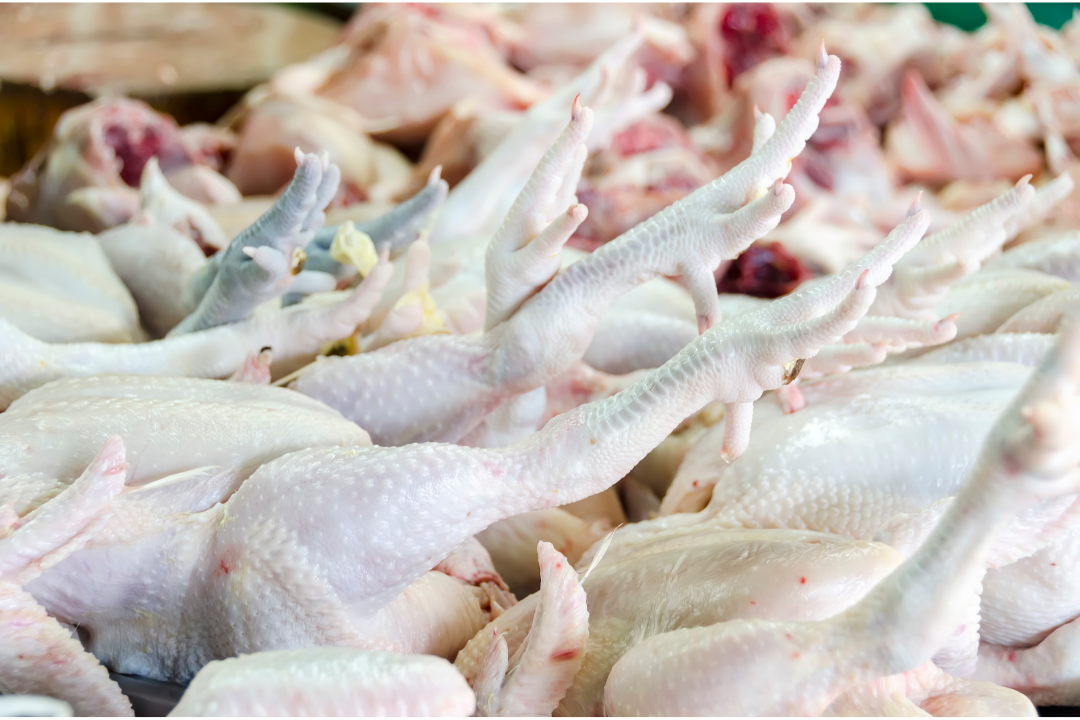Agri stakeholders ask for short-term moratorium on chicken imports

INQUIRER.net stock images
MANILA, Philippines — Agriculture stakeholders are sounding the alarm on the surplus of chicken in the market, resulting from excessive importation and smuggling of various farm commodities, which is only hurting local producers.
The Organization for Economic Cooperation and Development (OECD) estimates that chicken consumption in the Philippines will only increase by seven percent per capita to 15.08 kilos this year.
READ: PH importing more chicken, less beef and pork
On the other hand, the United States Department of Agriculture (USDA) projects that domestic production will rise by 1.48 million metric tons, which means that local output can meet the additional seven percent increase in per capita consumption.
Recognizing this, the Philippine Rural Reconstruction Movement (PRRM), a non-government organization, has proposed a short-term moratorium on chicken imports.
“Perhaps a very short moratorium on importation can be considered by the government,” suggested PRRM President Edicio dela Torre.
However, he emphasized that a moratorium on chicken imports should only be justified with accurate and updated data on consumption, domestic production, and the impact of imports on live weight prices.
In a related development, the Meat Importers and Traders Association (MITA) has sent a letter to the Department of Agriculture’s Bureau of Animal Industry, raising concerns about the alleged misdeclaration of chicken cuts as mechanically deboned meat (MDM).
This situation not only deprives the government of proper taxes but also disrupts market prices. To prevent similar scenarios, MITA recommended that import clearances for MDM be issued individually and separately, strictly for MDM only, without including other parts.
Stakeholders stressed that the best solution is for the government to control the issuance of import clearances. Samahang Industriya ng Agrikultura (SINAG) Executive Director Jayson Cainglet maintained that chicken imports should only be allowed when the supply is low, without violating trade commitments.
Similarly, the United Broiler Raisers Association (UBRA) Chairman Gregorio San Diego argued that chicken imports should be gradually reduced, considering the country’s dependence on them, allowing local production to adjust until self-sufficiency in broilers is achieved.
Data shows an excess of 110 days’ worth of supply, with broiler supply projected at 2.075 million metric tons and demand at 1.595 million metric tons for the year.
Chicken imports in the first quarter reached 142.51 million kilograms, comprising 33 percent of total meat imports at 432.27 million kilos during the same period. Dressed chicken inventory in cold storages also significantly increased by nearly 170 percent to 60,234.45 metric tons compared to the same period last year.
Although live weight prices are declining, retail prices remain high, posing a challenge for consumers. Dela Torre argued that the policy justification for imports is to ensure adequate supply and affordable prices, but when local supply increases without a reduction in imports, it penalizes local producers for improving productivity.
As importation and smuggling persist, Dela Torre emphasized that the government should consider the long-term impact on domestic production and food safety. Failing to address these issues may lead to a reduction in production and discourage investments in improving and expanding businesses, making it difficult to regain lost ground.